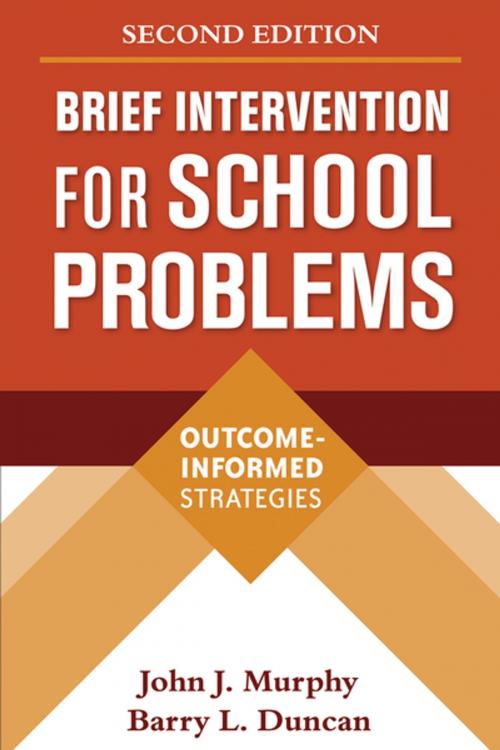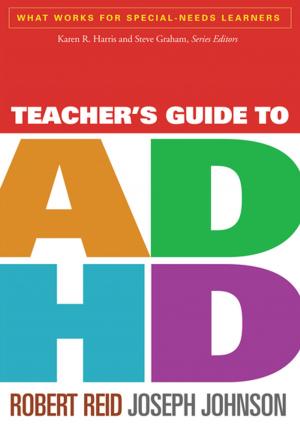Brief Intervention for School Problems, Second Edition
Outcome-Informed Strategies
Nonfiction, Health & Well Being, Psychology, Child & Adolescent, Child Psychology, Reference & Language, Education & Teaching, Educational Theory, Educational Psychology, Counseling & Guidance| Author: | John J. Murphy, PhD, Barry L. Duncan, PsyD | ISBN: | 9781606239315 |
| Publisher: | Guilford Publications | Publication: | June 3, 2010 |
| Imprint: | The Guilford Press | Language: | English |
| Author: | John J. Murphy, PhD, Barry L. Duncan, PsyD |
| ISBN: | 9781606239315 |
| Publisher: | Guilford Publications |
| Publication: | June 3, 2010 |
| Imprint: | The Guilford Press |
| Language: | English |
Every interaction with a young person who is struggling is an opportunity for change. This highly practical guide helps school practitioners find effective solutions to academic and behavioral problems through brief counseling. It shows how to build on the ideas and resources that students, parents, and teachers bring to the intervention process, within an innovative, research-supported, time-limited framework. Extensive case material illustrates the authors' creative approach to building solutions and "busting problems" by putting clients in the driver's seat. Filled with real-world examples from both elementary and secondary settings, the book presents creative strategies for addressing disciplinary problems, poor academic performance, anxiety, compulsive behaviors, and other common difficulties.
Every interaction with a young person who is struggling is an opportunity for change. This highly practical guide helps school practitioners find effective solutions to academic and behavioral problems through brief counseling. It shows how to build on the ideas and resources that students, parents, and teachers bring to the intervention process, within an innovative, research-supported, time-limited framework. Extensive case material illustrates the authors' creative approach to building solutions and "busting problems" by putting clients in the driver's seat. Filled with real-world examples from both elementary and secondary settings, the book presents creative strategies for addressing disciplinary problems, poor academic performance, anxiety, compulsive behaviors, and other common difficulties.















